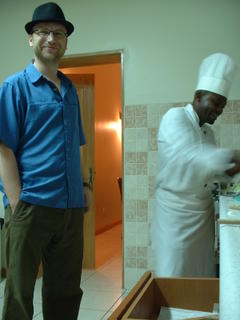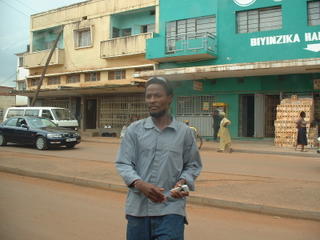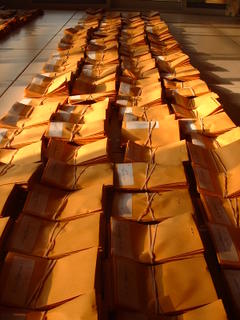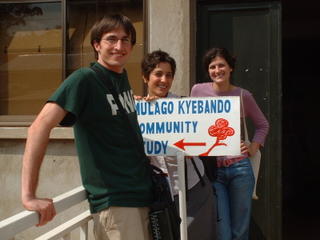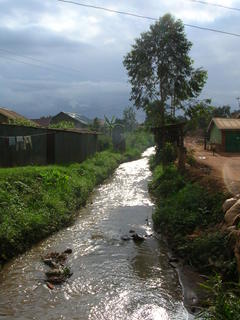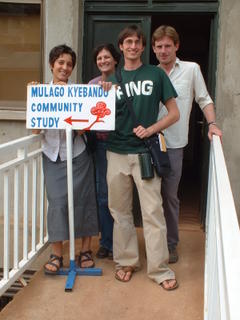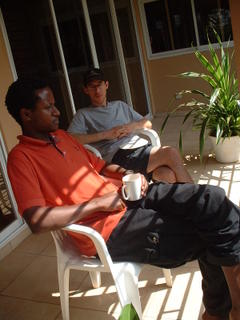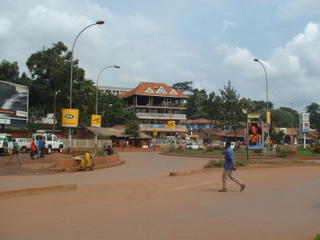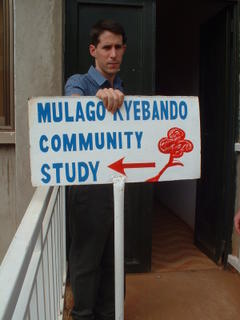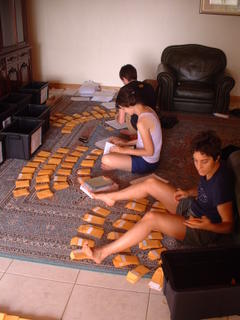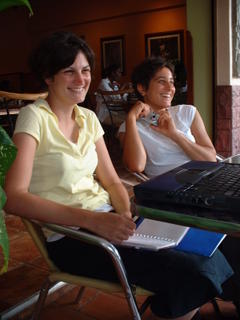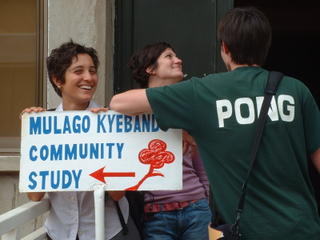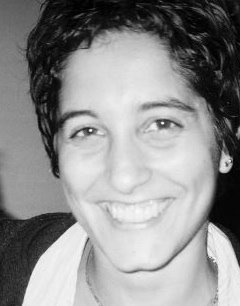Bayesian Breakdown
Every moment of pause and reflection on my summer experience so far concludes itself with a headshake and a smirk, with realizations of how wonderfully quirky and fun this Real World Kampala team has been.
The et als: James “This-data-is-slightly-dodgy” Habyarimana, Macartan “I-think-we-should-increase-the-sample-size” Humphreys, Dan “This-would-make-for-a-great-side-project” Posner, and Jeremy “We’re-toast” Weinstein. These guys are an unbelievable bunch. When they’re not debating a critically minute detail of the project over a three-hour long dinner, they’re arguing about whether the Indigo Girls can sing or merely harmonize, coming up with publication pseudonyms like Habyahumpostein, busting a move until 2.30 a.m. on the dance floors of Kampala’s club scene, or putting together a collection of primary data for their 14th research project - while they’re at it and just because they can. Jeremy left today and there are three weeks left to wrap up this field work. He asked me two months ago what I wanted and expected out of this summer experience and I challenged him and this project to inspire me into academia again.
There were too many Sunday mornings in the office and too many late nights in our dataset. There were too many card games of mafia and kuhandel and too many last minute decisions. There were too many plantains and too many monkey jokes. There were too many traffic jams and too many latte coffees. There were too many potholes and too many people per taxi van. There were too many Fantas and too many hours on Africa time.
There were not enough computers and not enough internet connections. There were not enough envelopes and not enough local enumerators. There were not enough rooms in the apartment and not enough power stabilizers. There were not enough showers and not enough functioning memory sticks. There were not enough hours in the day and certainly not enough hours of sleep.
The matoke bunch: We already each have our little idiosyncracies but we’re definitely quirky et als in the making. Nate has proceeded to pick up every local speech and facial maneurism we’ve come across and now sounds entirely Ugandan. Alex has mastered the art of mixing Lugandan and English in the same sentence while making Café Pap and its latte coffees her second home. As for me, I suppose others find it quirky that I’ll wake up before 7 on the few days we have off to escape to the Kabira Health Club, or that I’ll spend our precious little free time writing up elaborate blog entries of our experiences on the project, or that I’d rather walk to work and get lost through Mulago Hospital than take the pothole road to the office. Little do they know these structured methods of escape from the chaos of the project have kept me sane and productive – and my blog readers, whoever they may be, well-informed.
Of course we’re all academic types and we’ve all chosen to spend a summer on a project that exports economic lab experiments to the slums of Kampala, so there’s a slight selection bias there.
And of course we’ve all over-used our poli sci lingo in everyday parlance.
And then some: And if it wasn’t for the local staff, who have brought all the charm and the warmth to this project, this entire undertaking would have certainly been a lot more dull.
It was, altogether, just what I needed in a summer research project.
Everyone on this project found or built for himself his own contribution. I can’t imagine how it would have worked without one of the et als here, but I also can’t imagine how it would have worked without one of our local translators, or without Pepine our cook or Simon our driver, or without one of the grad students – even when we really felt like data-sorting monkeys.
Jeremy left and we said good-bye and it was heartfelt and cheesy. But I reminded him of that very first weekend a couple months ago at Al’s Bar in Kabalagala, of his question and of my hopes and expectations.
And I thanked him.


